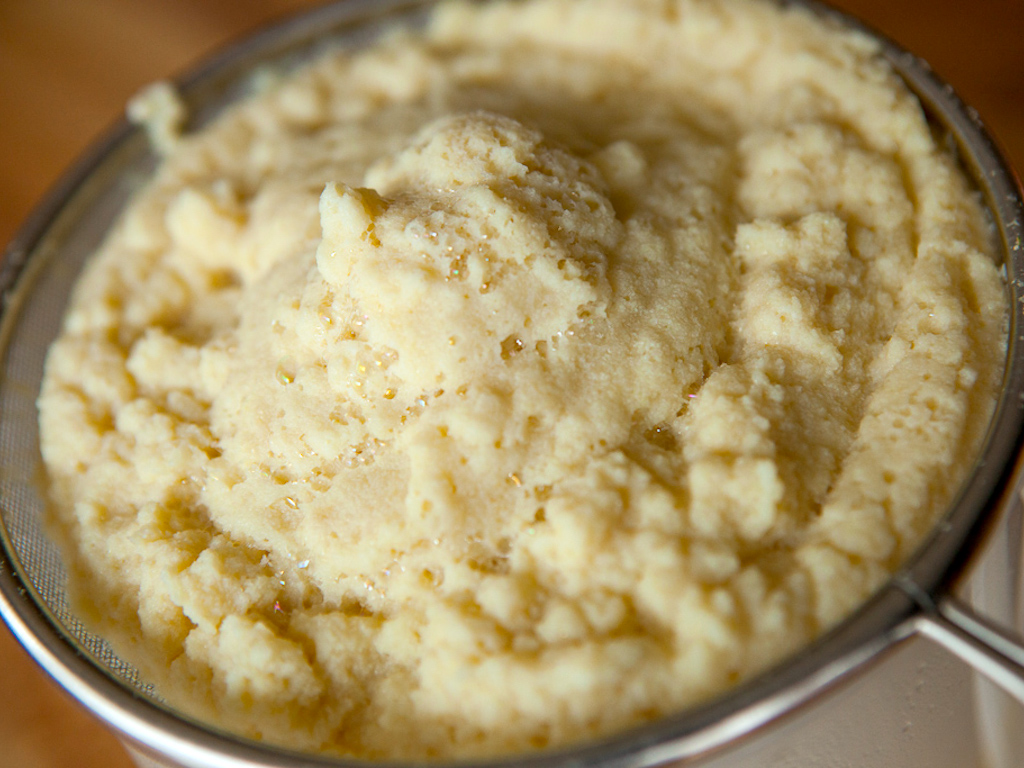3 Mins Read
Food scientists in Singapore are working to use okara, a byproduct of tofu production, to make cheaper cell-based meat. It can replace the use of fetal bovine serum (FBS) used in cellular agriculture that is expensive and comes from animals.
Researchers at Nanyang Technological University (NTU) are finding new uses for okara — the pulp leftover from making soy-based foods like soy milk and tofu. It contains high amounts of protein and fibre.
FBS-free cell culture media
The researchers fermented okara with microorganisms, heat, and water for about a week. They then extracted a yellow liquid from it, which contains plant growth hormones. These hormones could help animal cells to multiply into real animal tissue, enabling them to cultivate meat.

Replacing fetal bovine serum
Most cell-based meat production has had to rely on FBS, which is taken from the blood of unborn baby cows. It’s an extremely expensive process, costing as much as $2,000 per litre. It also presents ethical issues for a meat product aimed at ending animal slaughter, it requires tissue from unborn animals.
But now, the NTU team believes that their alternative can replace FBS—and lower costs as well. According to Professor William Chen, director of NTU’s food science and technology programme, the okara-based cell culture costs just $2 per litre.
“Okara is available in large quantities from the food industry, is edible and safe, and is low cost,” explained Chen, in an interview with the Straits Times.
At present, the team can produce around 300-400 ml of the extract from 200 grams of okara. Chen is joined by PhD student Teng Ting Shien, who is working on the project as part of his thesis.
Making cultivated meat
The NTU team says that they plan on making their FBS-free liquid extract available to cultivated meat companies. So far, Singapore stands as the world’s first and only country to have approved the sale of cultured meat.

Last December, Eat Just received approval to commercially sell its cultured chicken bites in Singapore — it has since encouraged more food techs to “apply early” to gain regulatory approval.
The city-state is known for its supportive food-tech ecosystem, as part of a plan to bolster food resilience and security. It also feeds into the country’s plan to build a sustainable food supply chain.
Cell-based meat is increasingly seen as a crucial sustainable protein solution. Currently, traditional livestock farming drives as much as 18% of global greenhouse gases. Making meat directly from animal cells would not only be more ethical, but it would also slash emissions because it won’t require raising cattle.
Read: 10 reasons why cultivated meat is the future of protein
NTU: embracing alternative protein
Last month, NTU became the first university in Asia-Pacific to launch a course dedicated to alternative proteins. It will cover cell-based meat, fermentation proteins as well as plant-based meats. Coordinated by Chen, the course is set to begin this August.
At the time, Chen said that NTU is “well-positioned” to host the new course, given its history of developing “a number of groundbreaking innovations for alternative protein production.”
“This [is a] historic university course on Future Foods,” Chen added. “The first of its kind in the APAC region.”
Lead image courtesy of Pax Ahimsa Gethen.




